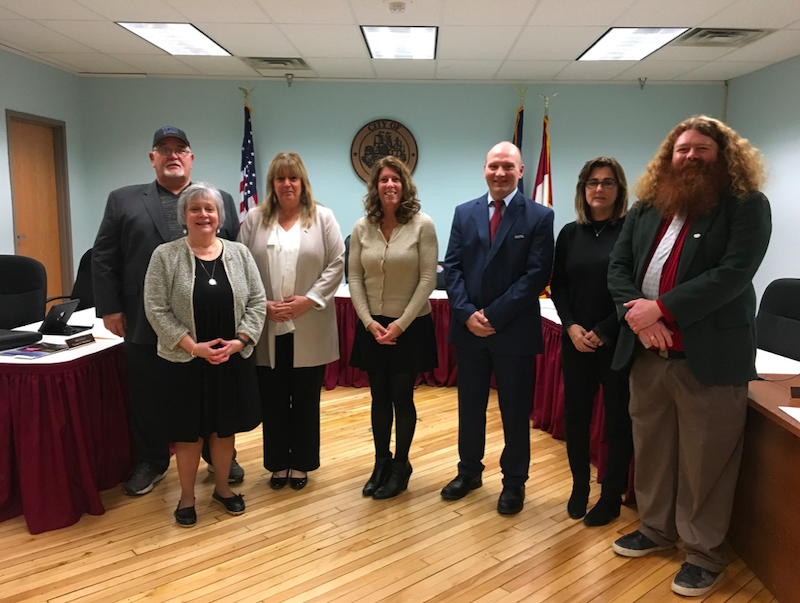PRESS RELEASE: SEPTEMBER 08 2020: TROY TO EXCLUDE MEMBERS OF INDIGENOUS COMMUNITY FROM SPEAKING AT PUBLIC MEETING
TROY, NY: Troy City Council About to Exclude Indigenous Leaders from
Speaking at Public Meeting About 240-unit Apartment-Development
Threatening National Register Eligible Mahican Cultural Site
The rules as they are presently written, are not only inconsistent with NYS Open Meetings Law, they also act in general excluding to peoples who maintain close ancestral ties to these lands and who lived on this lands long before the City of Troy was founded.
It is for these reasons that we request the Troy City Council and the Administration to revoke the residency requirement for all future public meetings of public bodies — to comply with the law, and to no longer exclude the original custodians of these lands.”
Ahead of Thursday’s City Council meeting, the Troy community coalition “Friends of the Mahicantuck” urges Troy City Council and City Council President Carmella Montello to lift restrictions on speaking rules during public meetings.
“Allowing only city residents to speak at a public meeting excludes indigenous communities and their leaders from speaking at this meeting. This is particularly problematic, as the city council will act on a resolution regarding a planned development which will cause the destruction of a National Register eligible site of historical and cultural significance to tribes of the Mahican peoples, including the Schaghticoke First Nations, Lenape and the Munsee Nations.”
Artifacts at a local site in Troy, at 1011 2nd Aave, date back to 1500-3000 BC. Planned development of 240 apartment units in six three-story-buildings puts the site at risk of destruction.
“It seems particularly cynical to insist on these rules, as the City of Troy is negotiating the future of such a critically important site of indigenous culture and history that spans thousands of years”,the Friends of the Mahicantuck explain in a statement.
The “Friends of the Mahicantuck” advocate for the protection of the land, and fight a rezoning request necessary for the development to move forward — something that they say is a “clear case of spot zoning”. The group also advocates for the city to actively work with the developer on finding a better suited alternative site at one of the many abandoned buildings and lots in direct vicinity of the land they seek to protect, advocating for a common sense solution that works for everyone.
The Troy City Council is set to vote on a resolution advancing the development on Thursday, September 10th, but only allows Troy residents to speak. This restriction is inconsistent with New York State Open Meetings Law. The “Friends of the Mahicantuck”, who work with leaders of local indigenous community as well as local residents and community organizations, urge the Council President and the administration of the City of Troy to remove this restriction for the upcoming and all future public meetings held by any public body of the City of Troy.
For more information on the development, the land protection initiative, the upcoming City Council meeting, and the Friends of the Mahicantuck’s advocacy for a “common sense solution”, please refer to our previous press release from September 04 2020.
OPEN LETTER SUBMITTED TO THE TROY CITY COUNCIL AND CITY COUNCIL PRESIDENT CARMELLA MANTELLO ON SEPTEMBER 8 2020:
Dear City Council President Carmella Mantello,
Dear Members of the City Council,
We request that the following statement also be entered into the meetings for the meeting on September 10th.
We are writing you regarding the posted rule that members of the public may only speak upon registering prior to city council meetings, and that only residents of the city of Troy may speak at said meeting.
We are reaching out to you, as we are concerned about this rule for several reasons.
First, we are concerned that this will prevent indigenous leaders from speaking.
The indigenous community has ties to the land in Lansingburgh, which is on the agenda for consideration in RES 91, from speaking.
This is outrageous as, as Planning Committee Chair Anasha Cummings rightfully pointed out in the meeting on August 27th, the indigenous peoples were “here first”. In fact, the land in question itself contains artifacts dating back to 1500-3000 BC, making this site National Register Eligible.
Second, it will prevent the City Council from hearing critical information provided by fact witnesses and experts regarding certain agenda items.
Third, restricting the opportunity to speak, and assigning different rules for different members of the public, is in direct conflict with the Open Meetings Law
This has been clearly stated in numerous public opinions issued by the New York Department of State Committee of Open Government, including in a communication from February 24, 2006, stating:
“While public bodies have the right to adopt rules to govern their own proceedings [see e.g., Education Law, §1709(1)], the courts have found in a variety of contexts that such rules must be reasonable. For example, although a board of education may “adopt by laws and rules for its government and operations”, in a case in which a board’s rules prohibited the use of tape recorders at its meetings, the Appellate Division found that the rule was unreasonable, stating that the authority to adopt rules “is not unbridled” and that “unreasonable rules will not be sanctioned” [see Mitchell v. Garden City Union Free School District, 113 AD 2d 924, 925 (1985)]. Similarly, if by rule, a public body chose to permit certain citizens to address it for ten minutes while permitting others to address it for three, or not at all, such a rule, in my view, would be unreasonable.
This opinion has been reaffirmed repeatedly in commission opinions, including from February 27, 1997, stating:
“In short, it is my view that any member of the public has an equal opportunity to partake in an open meeting, and that an effort to distinguish among attendees by residence or any other qualifier would be inconsistent with the Open Meetings Law and, therefore, unreasonable. Moreover, as suggested in the opinion addressed to Mr. Fishberg, people other than residents, particularly those who own property or operate businesses in a community, may have a substantial interest in attending and expressing their views at meetings of boards of education and other public bodies. Prohibiting those people from speaking, even though they may have a significant tax burden, while permitting residents to do so, would, in my view, be unjustifiable.”
We therefore urge you to revise the rule for this and any further meeting of a City of Troy public body, ensuring that participation rules are consistent with the Open Meetings Law, by ensuring that participation in public meetings is possible for every member of the public.
With sincere greetings,
The Friends Of the Mahicantuck Troy Community Organization




